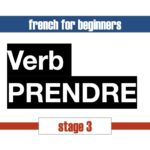Mastering ‘Avoir’: Essential French Verb Conjugation for English Speakers
‘Avoir’ (to have) is one of the most important verbs in the French language, not only for its meanings and uses as a main verb but also as an auxiliary verb used in many tenses. This guide aims to provide English-speaking learners with a comprehensive overview of the conjugation of ‘avoir’ across all tenses and moods, complete with English translations. Understanding ‘avoir’ is crucial for forming past tenses and expressing possession, making it a vital component of French grammar.
Présent de l’Indicatif (Present Tense)
| Français | Anglais |
|---|---|
| J’ai | I have |
| Tu as | You have |
| Il/Elle a | He/She has |
| Nous avons | We have |
| Vous avez | You have |
| Ils/Elles ont | They have |
Imparfait de l’Indicatif (Imperfect Tense)
| Français | Anglais |
|---|---|
| J’avais | I had |
| Tu avais | You had |
| Il/Elle avait | He/She had |
| Nous avions | We had |
| Vous aviez | You had |
| Ils/Elles avaient | They had |
Futur Simple de l’Indicatif (Future Simple Tense)
| Français | Anglais |
|---|---|
| J’aurai | I will have |
| Tu auras | You will have |
| Il/Elle aura | He/She will have |
| Nous aurons | We will have |
| Vous aurez | You will have |
| Ils/Elles auront | They will have |
Passé Simple de l’Indicatif (Simple Past Tense)
| Français | Anglais |
|---|---|
| J’eus | I had |
| Tu eus | You had |
| Il/Elle eut | He/She had |
| Nous eûmes | We had |
| Vous eûtes | You had |
| Ils/Elles eurent | They had |
Plus-que-parfait de l’Indicatif (Pluperfect Tense)
| Français | Anglais |
|---|---|
| J’avais eu | I had had |
| Tu avais eu | You had had |
| Il/Elle avait eu | He/She had had |
| Nous avions eu | We had had |
| Vous aviez eu | You had had |
| Ils/Elles avaient eu | They had had |
Futur Antérieur de l’Indicatif (Future Perfect Tense)
| Français | Anglais |
|---|---|
| J’aurai eu | I will have had |
| Tu auras eu | You will have had |
| Il/Elle aura eu | He/She will have had |
| Nous aurons eu | We will have had |
| Vous aurez eu | You will have had |
| Ils/Elles auront eu | They will have had |
Conditionnel Présent (Present Conditional)
| Français | Anglais |
|---|---|
| J’aurais | I would have |
| Tu aurais | You would have |
| Il/Elle aurait | He/She would have |
| Nous aurions | We would have |
| Vous auriez | You would have |
| Ils/Elles auraient | They would have |
Conditionnel Passé (Past Conditional)
| Français | Anglais |
|---|---|
| J’aurais eu | I would have had |
| Tu aurais eu | You would have had |
| Il/Elle aurait eu | He/She would have had |
| Nous aurions eu | We would have had |
| Vous auriez eu | You would have had |
| Ils/Elles auraient eu | They would have had |
Subjonctif Présent (Present Subjunctive)
| Français | Anglais |
|---|---|
| Que j’aie | That I have |
| Que tu aies | That you have |
| Qu’il/elle ait | That he/she has |
| Que nous ayons | That we have |
| Que vous ayez | That you have |
| Qu’ils/elles aient | That they have |
Subjonctif Imparfait (Imperfect Subjunctive)
| Français | Anglais |
|---|---|
| Que j’eusse | That I had |
| Que tu eusses | That you had |
| Qu’il/elle eût | That he/she had |
| Que nous eussions | That we had |
| Que vous eussiez | That you had |
In summary, mastering the verb ‘avoir’ is indispensable for anyone learning French. Not only does it serve as a fundamental verb for expressing possession and existence, but it is also essential as an auxiliary verb used in all compound tenses. This dual role underscores its importance in French grammar and daily language use. Familiarity with ‘avoir’ and its conjugations will significantly enhance your proficiency and understanding of French, allowing you to form correct and complex sentences.


